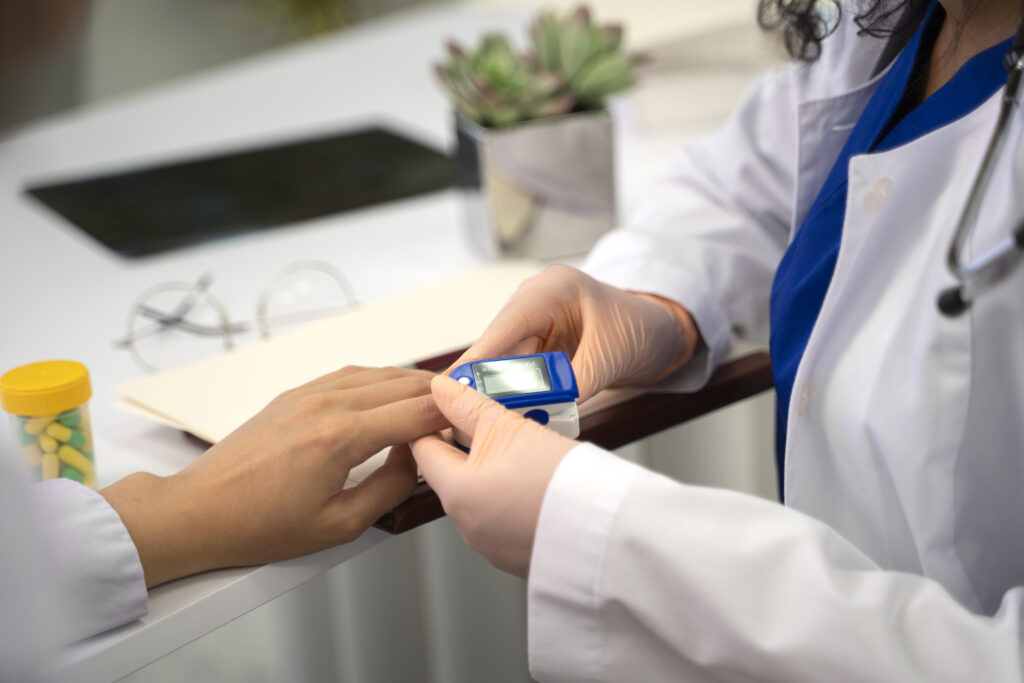Top Diabetologist in Gurgaon: Dr. Prasad, Naturopathy Doctor
Introduction
Diabetes is a growing concern worldwide, affecting millions of individuals. In Gurgaon, Dr. Prasad stands out as a top diabetologist in Gurgaon who incorporates naturopathy into his practice. At “Apncnaturecure.com,” we offer comprehensive care and innovative treatments for diabetes, focusing on natural methods to manage and potentially reverse the condition.
Understanding Diabetes
Diabetes is a chronic health condition that affects how your body turns food into energy. The main types of diabetes include Type 1, Type 2, and gestational diabetes.
Type 1 Diabetes
An autoimmune condition where the body attacks insulin-producing cells in the pancreas.
Type 2 Diabetes
A condition where the body becomes resistant to insulin or doesn’t produce enough insulin.
Gestational Diabetes
Diabetes that occurs during pregnancy and usually resolves after childbirth.

Causes of Diabetes
Genetic Factors
Family History
If you have a family member with diabetes, your risk of developing the condition increases. This is because certain genetic markers can be inherited, making you more susceptible to diabetes.
Genetics
Specific genes associated with the regulation of insulin production and glucose metabolism can predispose an individual to diabetes. For instance, certain variations in the HLA (human leukocyte antigen) genes are linked to a higher risk of Type 1 diabetes.
Lifestyle Choices:
Poor Diet
Consuming a diet high in processed foods, sugary beverages, and unhealthy fats can lead to insulin resistance, a precursor to Type 2 diabetes.
Lack of Physical Activity
Regular exercise helps regulate blood sugar levels and maintain a healthy weight. Sedentary behavior, on the other hand, increases the risk of developing insulin resistance and Type 2 diabetes.
Obesity
Excess body fat, especially around the abdomen, is a major risk factor for Type 2 diabetes. Fat cells release inflammatory chemicals that can make the body less sensitive to insulin, leading to higher blood sugar levels.
Environmental Factors
Viral Infections
Certain viral infections have been linked to the onset of Type 1 diabetes. These infections can trigger an autoimmune response where the body’s immune system mistakenly attacks and destroys insulin-producing cells in the pancreas.
Other Environmental Triggers
Exposure to toxins, pollutants, or stress can also contribute to the development of diabetes. These factors can interact with genetic predispositions to increase the risk.
Hormonal Changes
During pregnancy, hormonal changes can affect the body’s ability to use insulin effectively, leading to gestational diabetes. This condition increases the risk of developing Type 2 diabetes later in life for both the mother and the child.
Symptoms of Diabetes
Frequent Urination
When blood sugar levels are high, the kidneys attempt to filter out the excess glucose by increasing urine production. This process, known as osmotic diuresis, leads to frequent urination. The body tries to eliminate the surplus sugar by excreting it through the urine, resulting in more frequent trips to the bathroom.
Increased Thirst
As frequent urination occurs, the body loses a significant amount of water. This leads to dehydration, triggering an increased sensation of thirst. The body’s natural response to dehydration is to prompt the individual to drink more fluids to replenish the lost water and maintain hydration levels.
Extreme Fatigue
Glucose is the primary source of energy for the body’s cells. In cases of insufficient insulin levels or insulin resistance, glucose cannot enter the cells effectively. As a result, cells are deprived of the energy they need, leading to feelings of extreme fatigue and tiredness. This lack of energy is because the glucose remains in the bloodstream rather than being utilized by the cells.
Blurry Vision
High blood sugar levels can cause changes in fluid levels within the eyes, specifically in the lenses. When blood glucose levels fluctuate, the lenses can swell or shrink, affecting their ability to focus properly. This leads to blurry vision, which can vary in severity depending on the level of blood sugar control.
Slow Healing Sores
Elevated blood sugar levels can impair blood circulation, which is crucial for the healing process. Additionally, high blood sugar can weaken the immune system, making it harder for the body to fight off infections. Poor blood circulation and a compromised immune response can lead to slower healing of sores and wounds, increasing the risk of infections and complications.
Understanding these symptoms is essential for recognizing and managing conditions like diabetes. Maintaining healthy blood sugar levels through proper diet, exercise, and medication can help alleviate these symptoms and improve overall health.
Types of Diabetes and Their Management
Type 1 Diabetes
Management
Insulin Therapy: Type 1 diabetes is an autoimmune condition where the body’s immune system attacks insulin-producing cells in the pancreas. As a result, patients need to take insulin to regulate blood sugar levels.
Blood Sugar Monitoring: Regular monitoring of blood glucose levels helps in managing insulin dosages and maintaining optimal blood sugar levels.
Healthy Diet: A balanced diet rich in nutrients and low in refined sugars helps maintain steady blood sugar levels. Carbohydrate counting is often essential.
Regular Exercise: Physical activity helps improve insulin sensitivity and overall health, making it easier to manage blood glucose levels.
Naturopathy Approach:
Balanced Diet: Emphasizes whole foods, avoiding processed and sugary foods, and ensuring a diet rich in fruits, vegetables, lean proteins, and whole grains.
Stress Reduction Techniques: Practices such as yoga, meditation, and deep breathing exercises help manage stress, which can affect blood sugar levels.
Regular Physical Activity: Encourages consistent exercise routines tailored to individual capabilities, enhancing overall health and glucose metabolism.
Type 2 Diabetes
Management
Lifestyle Changes: Diet and exercise are the first line of defense. A healthy diet and regular physical activity can help manage weight and improve insulin sensitivity.
Oral Medications: Various medications help increase insulin sensitivity, stimulate insulin production, or reduce glucose production by the liver.
Insulin Therapy (Sometimes): In some cases, insulin therapy may be necessary if other treatments are insufficient.
Naturopathy Approach
Weight Management: Focuses on achieving and maintaining a healthy weight through diet and exercise, which can significantly improve insulin sensitivity and blood sugar control.
Natural Supplements: Utilizes supplements such as chromium, magnesium, and alpha-lipoic acid, which may support blood sugar regulation.
Dietary Adjustments: Emphasizes a diet low in refined carbohydrates and high in fiber, healthy fats, and lean proteins.
Gestational Diabetes
Management
Blood Sugar Monitoring: Regular monitoring helps manage blood glucose levels and ensures they stay within a healthy range during pregnancy.
Healthy Diet: A diet plan tailored to pregnancy needs, focusing on balanced nutrition to support both mother and baby while maintaining blood sugar levels.
Physical Activity: Safe and gentle exercises help improve insulin sensitivity and overall well-being.
Naturopathy Approach
Nutritional Counseling: Provides personalized dietary advice to ensure the mother gets the necessary nutrients while keeping blood sugar levels stable.
Gentle Exercise Programs
Encourages activities like walking, swimming, or prenatal yoga, which are safe and beneficial during pregnancy.
Stress Management
Techniques such as relaxation exercises, mindfulness, and adequate rest are emphasized to reduce stress, which can impact blood sugar levels.
In summary, managing diabetes involves a combination of medical treatments and lifestyle changes. Conventional management focuses on medication and lifestyle modifications, while naturopathy emphasizes natural and holistic approaches to support overall health and well-being. Both approaches aim to maintain healthy blood sugar levels and prevent complications associated with diabetes.
Naturopathy and Diabetes Management
Dr. Prasad, a top diabetologist in Gurgaon, integrates naturopathy into diabetes care to provide holistic treatment. Naturopathy emphasizes the body’s ability to heal itself and uses natural remedies and lifestyle changes to manage diabetes. Key aspects of naturopathy in diabetes management include:
Dietary Changes
Emphasizing whole foods, low glycemic index foods, and balanced nutrition.
Physical Activity
Customized exercise plans to improve insulin sensitivity and overall health.
Herbal Remedies
Use of herbs and supplements known to support blood sugar control.
Stress Management
Techniques like yoga, meditation, and breathing exercises to reduce stress.
Detoxification
Natural detox programs to eliminate toxins that may affect metabolic processes.
Actionable Tips for Managing Diabetes
Monitor Blood Sugar Levels
Regular monitoring helps track how well your diabetes management plan is working.
Adopt a Healthy Diet
Focus on consuming low glycemic foods, plenty of fiber, and lean proteins.
Stay Active
Engage in at least 30 minutes of moderate exercise most days of the week.
Manage Stress
Practice yoga, meditation, or deep-breathing exercises to keep stress in check.
Stay Hydrated
Drink plenty of water to help control blood sugar levels and prevent dehydration.
By choosing Dr. Prasad, a top diabetologist in Gurgaon, you are opting for a comprehensive and natural approach to diabetes management. His expertise as a top diabetologist in Gurgaon ensures that you receive personalized and effective care. At “Apncnaturecure.com,” Dr. Prasad, a renowned diabetologist in Gurgaon, combines traditional diabetes treatments with the principles of naturopathy to offer a holistic solution for managing and potentially reversing diabetes.

Frequently Asked Questions (FAQs)
Naturopathy is a holistic approach to healthcare that uses natural therapies to support the body’s ability to heal itself.
Answer: Potential complications include heart disease, stroke, kidney disease, eye problems (retinopathy), nerve damage (neuropathy), foot problems, and increased risk of infections.
During your first visit, Dr. Prasad will conduct a thorough assessment of your medical history, lifestyle, and specific knee condition to develop a personalized treatment plan.
Book an Appointment
Booking an appointment with Dr. Prasad is easy. Simply follow these steps:
- Visit our Website: https://apncnaturecure.com/
- Fill Out the Appointment Form: Complete the online appointment form with your details and preferred consultation date and time.
- Submit the Form: Click submit, and our team will get in touch with you to confirm your appointment.
Alternatively, you can contact us directly via phone or email to schedule your consultation.
Contact Us
To learn more about naturopathy or to schedule a consultation with Dr. Prasad, please visit APNC Nature Cure or contact the clinic directly at:
- Phone: 9311807111
- Email: care.apnc@gmail.com
- Address: Plot No. 236, Vikas Marg, Block -C, Uday Nagar , sector 45, Gurugram (HR) 1220033

Dr. Prasad employs a personalized treatment plan for each patient, taking into account their unique medical history, lifestyle, and specific knee condition. His approach includes:
